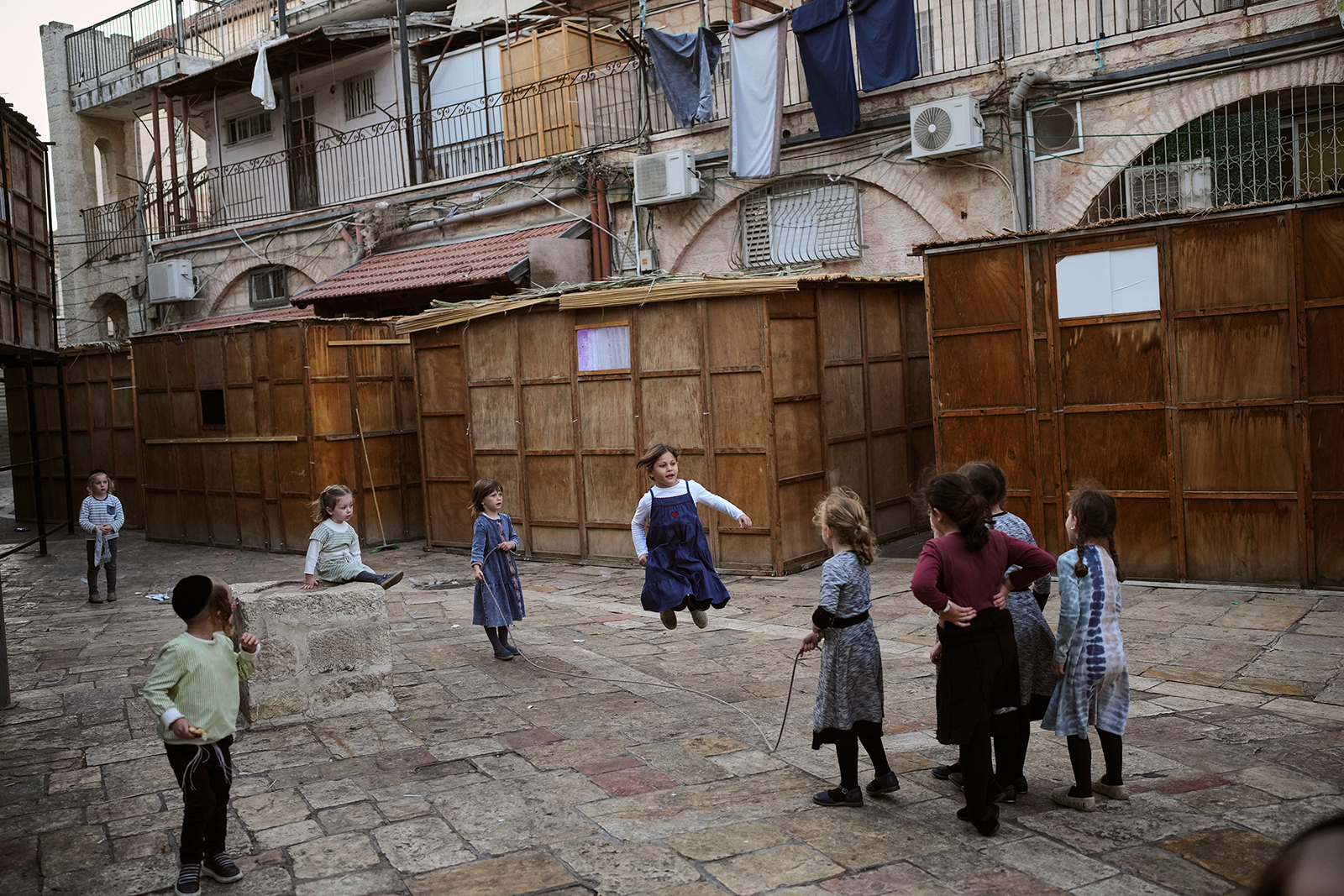
(RNS) — Monday evening (Oct. 6) begins the Jewish holiday of Sukkot, the last and perhaps least known of Judaism’s autumn holy days that follows Rosh Hashana and Yom Kippur. Across Israel and in Jewish neighborhoods around the world, impermanent structures of various materials, shapes and sizes have sprouted like post-rain mushrooms.
Sukkot takes its name from those structures (the singular is sukkah), which Jews are enjoined by the Torah to inhabit for a week each year. The walls of sukkot can be made of any material, but their roofs must consist of pieces of unprocessed wood or vegetation, and the material may not be fastened in place.
At first glance, living in sukkos — necessarily vulnerable to wind, rain and pests — would seem to compound any innate Jewish proclivity to worry. The delicate dwellings would only intensify the fabled (and well-earned) Jewish anxiety. And yet, at least for Jews who appreciate the holiday’s import, just the opposite is true.
For Jewish tradition considers the sukkah to be a symbol of the divine “clouds of glory” that protected the ancestors of today’s Jews as they wandered in the desert after leaving Egypt. The miraculous clouds, Jewish tradition has it, destroyed whatever obstacles or noxious creatures stood in the people’s path.
The demons were not vanquished when the Israelites made a permanent home. Indeed, centuries later, the rabbis, citing the Talmud, perceived invisible “demons” lurking everywhere. Were we able to see them, one rabbi said, we would be unable to handle the sight. It would drive us mad. I sometimes wonder if those “demons” might be the mites and bacteria that live on our skin and hair, which, enlarged manyfold, would definitely horrify us, but the sages seem to have been referring to malevolent incorporeal beings.
It would be naïve to imagine that demons are only of another world. Especially for us Jews, who are disproportionately the targets of the flesh-and-blood devils.
Consider Muhammad Shahzeb Khan, a Pakistani national who was extradited this year from Canada to the U.S., charged with plotting a terrorist attack against a Jewish center in Brooklyn. Or Jihad Al-Shamie, who attacked a Manchester synagogue on Yom Kippur, an attack that left two worshippers dead and another three injured.
Demons aren’t only bedeviling Jews.
Ammar Abdulmajid-Mohamed Said, a former member of the Michigan Army National Guard, allegedly plotted a mass shooting at a U.S. military base in Warren, Michigan, on behalf of the Islamic State of Iraq. Nasir Ahmad Tawhedi, an Oklahoma man, was arrested last year for plotting a mass shooting on behalf of the Afghan branch of the Islamic State.
We might call Charlie Kirk’s assassin a demon. Or the man who shot up a Latter-day Saints church in Michigan and set it aflame.
Those are just a few of the more recent demonic plots. Some were, thankfully, foiled; others, tragically, were not. Their would-be perpetrators and perpetrators alike walked among us long before their acts, their malevolence unseen and unsuspected.
And then, of course, there are the larger demons, the mullahcracy in Iran or the dementocracy of North Korea and entities such as Hamas and Hezbollah and al-Qaida.
But the sukkah represents a deeper truth: Security is not a function of fortresses; it is a gift granted, ultimately, from above.
There is a Yiddish poem by the Russian American writer Avraham Reisen and sung in countless sukkot that well captures the idea. It paints the picture of a Jewish father sitting in his sukkah, as a storm rages. His anguished daughter tries to convince him that the sukkah is about to fall. He responds (my rendering from the Yiddish):
Dear daughter, don’t fret;
It hasn’t fallen yet.
The sukkah’s fine; banish your fright.
There have been many such fears,
For nigh two thousand years;
Yet the little sukkah still stands upright.
Jewish autumn holiday huts, of course, have indeed succumbed to storms. Many Jews, too, have fallen at the hands of ancient and modern murderers alike. But, as Reisen’s metaphor so poignantly reminds us, there is timeless meaning in the fact that, devils be damned, the Jewish people as a people has survived.
And the meaning lies in what the sukkah’s fragility implies — and whence that ultimate security comes.
So all the world’s craziness and evil, all the unreason and hatred and plotting and violence and demons, cannot shake the serenity of the sukkah. As physically fragile as it may be, it is, in a deeper sense, an impenetrable shelter.
A month before Rosh Hashana, Psalm 27 is added to Jewish prayer services and is recited twice a day until the end of the Sukkos holiday. In one of the Psalm’s verses, King David sings: “For He will hide me in His sukkah on the day of evil.”
(Rabbi Avi Shafran writes widely in Jewish and general media and blogs at rabbiavishafran.com. The views expressed in this commentary do not necessarily reflect those of Religion News Service.)
